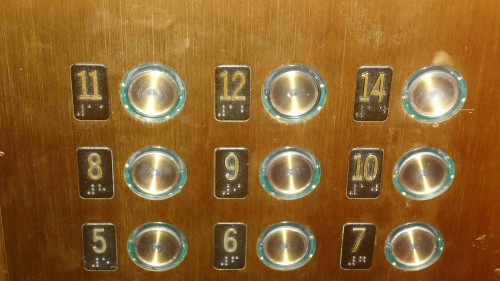
Hotel guests are increasingly finding extra charges on their bills labeled as “resort fees,” “convenience fees,” “urban amenity fees,” or, worse, simply “fees.”
But in my story this week for CNBC, we learn that help is on the way to make sure hotels are better about disclosing before you book. Or not charging them at all.
The fees are said to cover everything from internet and fitness room access to bottles of water and can average from a few dollars to more than $30 a day, according to ResortFeeChecker.com, with some properties in Las Vegas charging daily resort fees of $45. KillResortFees.com cites one Miami resort that tacks on a hefty $160.50 nightly fee to its rates.
“It’s called drip pricing,” says Robert Cole, a senior research analyst at travel research company Phocuswright. Cole calls the practice “consumer-hostile” because consumers often click on an appealing advertised nightly room price only to find that a few clicks later the real nightly room rate is much higher.
Adding resort fees separately also allows hotels to cut commissions to travel advisors and online sites, “since the hotels only pay commissions on the lower room rate, not the additional fees,” said Albert Herrera, senior vice president of global product partnerships at the Virtuoso travel network.
States are pushing to make the room rates and fees more transparent. Attorneys general in Nebraska and the District of Columbia last year filed suit against Hilton and Marriott, respectively, charging the hotels with advertising and pricing rooms in a deceptive and misleading manner in violation of state laws. The lawsuits followed an investigation by 50 attorneys general into hotel resort fees.
Hilton, named in the Nebraska suit, said in a statement that “resort fees are charged at less than two percent of our properties globally, enable additional value for our guests, and are always fully disclosed when booking through Hilton channels.”
In December, a judge denied Marriott’s motion to dismiss the D.C. case, which has now moved on to the discovery phase. Marriott said in a statement that it plans to continue a “vigorous fight” against the case, adding that “Marriott’s policy is to disclose resort fees during the booking process so that it is reflected in the total price shown before the guest completes the reservation process.”
In October 2019, Wyndham Hotels & Resorts did not admit liability but agreed to pay a $6 million settlement to resolve claims in a class-action lawsuit regarding deceptive resort fees. The company said in a statement that it believes it has always complied with laws and called the settlement “amicable in principle.”
There’s also an effort to ban the fees at the federal level. In September 2019, a bipartisan bill seeking to end hidden resort fees was introduced in Congress. Consumer advocacy groups such as Travelers United and the website Kill Resort Fees are among the organizations pushing to move the bill forward.
Meanwhile, booking companies are trying to get hotels to be more upfront about their fees as well.
At the beginning of 2020, Booking.com began charging properties commissions on both the advertised room rate and any extra resort and mandatory fees charged to customers.
The fee was added “to provide our customers transparent information about the total price they will need to pay at a property,” said company spokeswoman Angela Cavis, “and to create a level playing field for all of our accommodation partners.”
In a statement, the Expedia Group says it has some concerns about whether amenity fees are in the best interest of travelers. Company spokeswoman Alexis Tiacoh said Expedia is now evaluating how high hotels with mandatory fees appear in the online rankings.
“Our goal is to ensure that among otherwise equal hotels, those not charging mandatory fees have higher visibility to travelers on our sites, thereby empowering travelers to compare their travel options easily and intuitively,” said Tiacoh.
Advice for travelers
In its 2017 “How America Travels” consumer research study, the American Society of Travel Advisors (ASTA) found that 61 percent of travelers support prohibiting the practice of hotels adding mandatory resort fees on top of advertised room rates. (ASTA itself doesn’t advocate banning the fees but is in favor of greater disclosure of the fees.)
Despite consumer disapproval, many hotels continue charging amenity fees. In many cases, they don’t clearly disclose the fees to consumers.
“Some hotel websites include mandatory fees and taxes in faint grey type after the listing by room rates,” said Charlie Leocha of Travelers United.
For those intent on avoiding amenity fees, travel experts note that some brands skip these fees for loyalty club members, while others waive them for those redeeming points.
For example, on a recent stay in Seattle, executive coach Cathy Raines joined the Warwick Hotel’s loyalty program to get a preferred nightly rate. She noticed the nightly urban retreat fee but didn’t think there was anything she could do about it. “It sounded like a city regulation,” said Raines, “So I was pleasantly surprised that members did not have to pay that fee.”
For those hit with unwanted hotel amenity fees on their bills, Lauren Wolfe, creator of the Kill Resort Fees website suggests filing a consumer complaint.
“Take 60 seconds after your stay; Google “consumer complaint” + (your state) Attorney General; and fill out the form to have your AG work with the hotel to refund your hotel resort fees,” says KillResortFees.com founder Lauren Wolfe.
If this sounds like a futile effort, Wolfe says, think again. Often, the state attorney general’s office will direct the hotel to refund the customer.